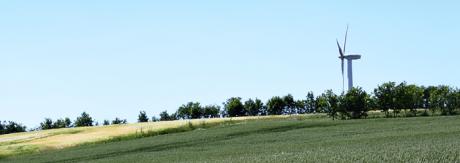
New EU plan to trim targets on biofuel use
“The EU’s dramatic change of direction when it comes to the environment can mean the death of an entire industry, but at the same time it opens the door for a brand new green industry in e.g. Denmark,” writes Lars Attrup.
A goodbye to biodiesel
The EU Commission is proposing new legislation on biofuels. This legislation can very well result in the closure of the main part of the biodiesel industry in Europe – an industry which arose because of a political decision on the use of biofuels in the transport sector. This industry is today worth around € 17 billion a year.
The proposals are contained in long-awaited EU plans to address the indirect land use change (ILUC) impact of biofuels, a subject that has split officials, biofuel producers and scientists, delaying legislative proposal for almost two years.
Focus on sustainability
According to the proposals, the use of biofuels made from crops such as rapeseed and wheat would be limited to 5 % of total energy consumption in the EU transport sector in 2020.
Such a limit will throw into doubt the EU's binding target to source 10 % of road transport fuels from renewable sources by the end of the decade, the vast majority of which was expected to come from crop-based biofuels.
To make up the shortfall, the Commission wants to increase the share of advanced non-land using biofuels made from household waste and algae in the EU's 10 % target.
”At the same time, the EU Commission introduces a system where the negative effects of the individual types of biofuel are offset against the calculated climate effect,” writes Lars Attrup.
“It is a good thing that the EU Commission now finally, after two years of waiting, “maybe” comes forward with ILUC rules for the different types of biofuels,” says Svend Brandstrup, CEO hveiti.
He adds: ”Now it is time for a focus on sustainability from a holistic point of view. At hveiti we see this legislation a necessary and in high time, as we believe that all resources have to be used in the most optimal way possible, to create high value products with as little and effective an energy consumption as possible.”
The new EU proposals have been made in the light of calculations from among others the International Food Policy Research Institute. According to these calculations, biodiesel made from rapeseed emits a little more CO2 than conventional diesel. In return, the calculations show that bioethanol made from corn or wheat has a considerable positive effect on the environment. This will be taken into account in the proposals for the new EU legislation, writes Lars Attrup.
Follow the developments within biorefining. hveiti regularly informs about our efforts to improve the environment.
Copyright © 2011 | Hveiti | Design Rabotnik




